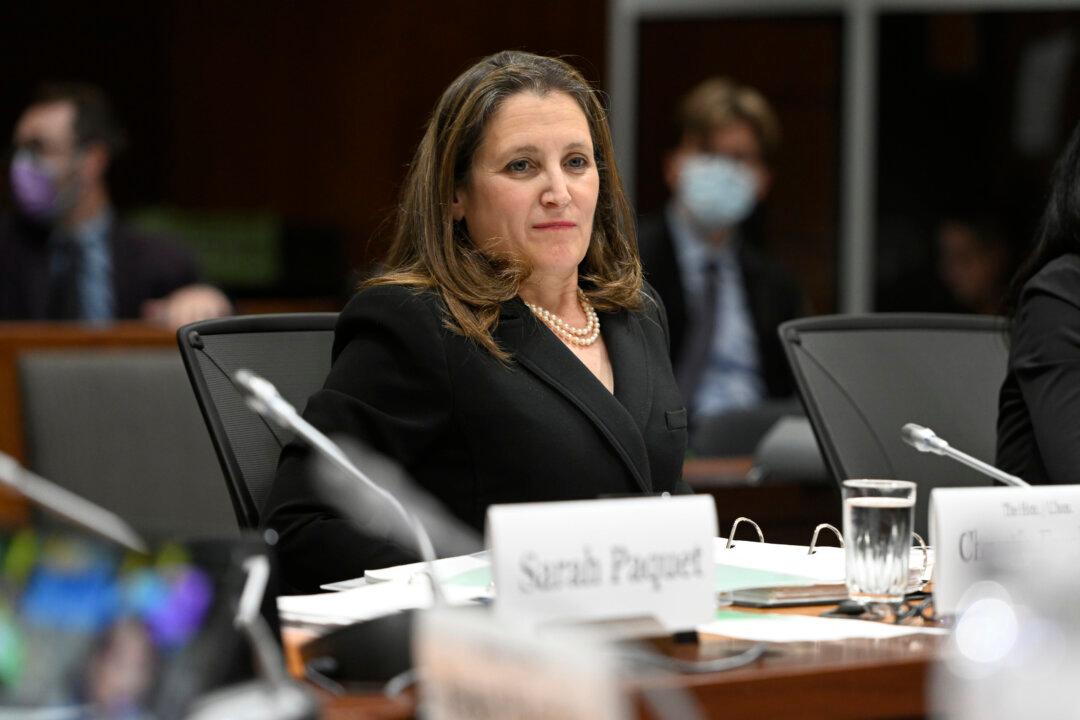Ensuring Russia loses its war against Ukraine is part of Canada’s plan to address high levels of inflation, Finance Minister Chrystia Freeland said Monday.
“I absolutely do believe that an important part of Canada’s inflation fighting strategy has to be to support Ukraine, and to ensure that Ukraine does win in the war against Vladimir Putin,” Freeland told the House of Commons Standing Committee on Finance.





